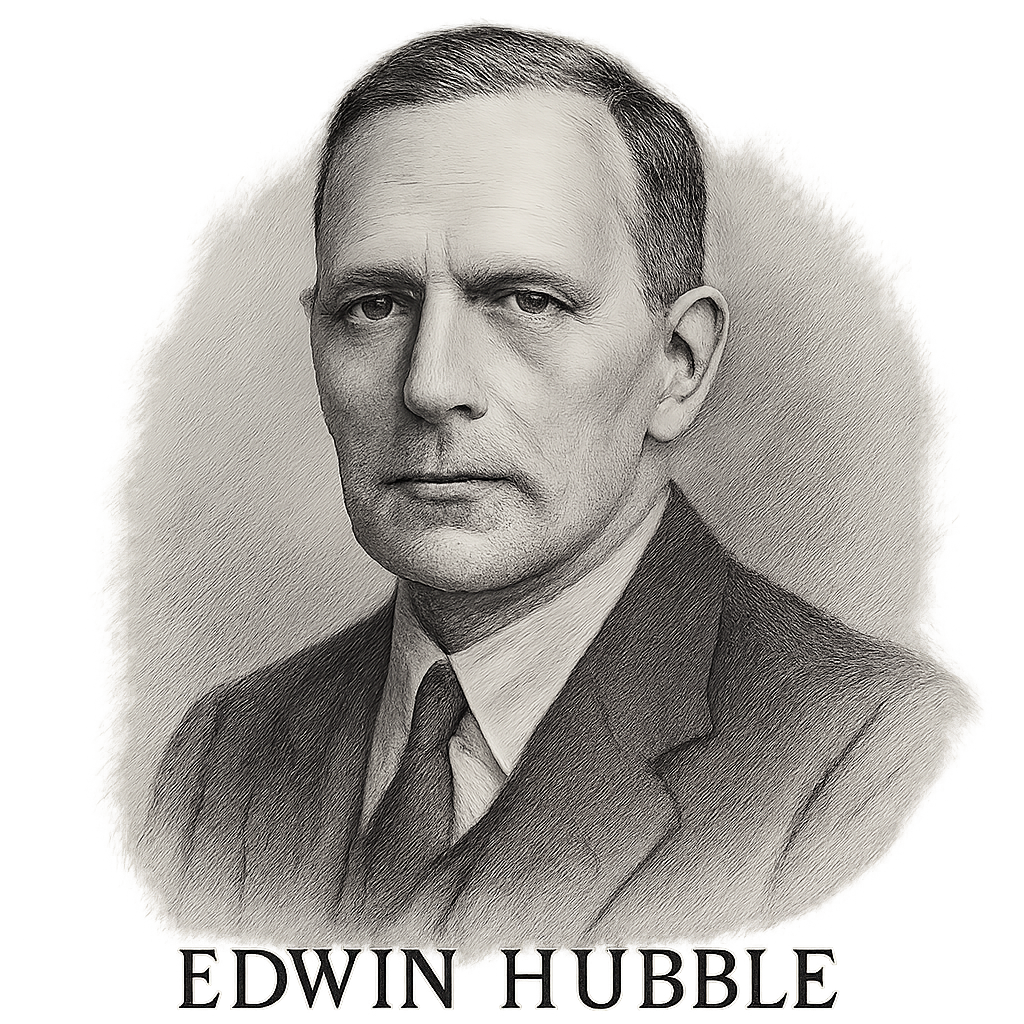Written by Sarah A.
Edwin Hubble (Edwin Powell Hubble)
Edwin Powell Hubble was one of the most prominent American astronomers of the twentieth century. He was born on November 20, 1889, in Marshfield, Missouri, and studied mathematics and astronomy, earning a bachelor’s degree before dedicating his entire scientific career to the study of the universe.
His discoveries marked a turning point in modern astronomy: Hubble proved that the universe in which we live is not static but is in a state of constant expansion. Through his meticulous studies of the light from distant galaxies, he demonstrated that the Milky Way is not the only galaxy in existence, but rather that there are countless galaxies in the cosmos.
In his research, Hubble analyzed the shift in the wavelengths of light from these galaxies and observed that the farther a galaxy was from us, the more its light was displaced toward the red end of the visible spectrum. This phenomenon, known as the redshift, revealed that galaxies are receding from us at a velocity proportional to their distance.
From this, Hubble concluded that the universe is in a state of ongoing expansion and formulated what is now known as the Hubble Law, which states that the recession velocity of galaxies increases proportionally with their distance from us. This groundbreaking discovery revolutionized our understanding of the cosmos and laid the foundation for the Big Bang Theory, which remains the dominant scientific model for explaining the origin and evolution of the universe.
References:
- NASA: Edwin Hubble
- Dorling Kindersley Verlag, Steine & Mineralien, Munich, 2023

